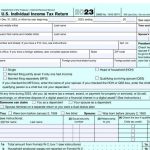The average interest rate on a bank credit card is currently 21.5%. That’s the highest level since the Federal Reserve started tracking the data in 1994, according to The Associated Press.
Do you have credit card debt? If so, do you know what interest rate you’re paying?
Not all is debt is created equal. Some forms of debt can actually help you build wealth if used strategically. But how can you tell good debt from bad debt?
Here are four ways to make the distinction.
1. Good Debt Puts Money Into Your Pocket
The key to evaluating whether debt is good or bad is how it impacts cash flow.
Many people wonder if their residence is an asset or liability. Generally, your home is a liability because it costs you money to live there.
It takes money out of your pocket.
According to Rich Dad Poor Dad author Robert Kiyosaki, “Bad debt is debt that makes you poorer. I count the mortgage on my home as bad debt, because I’m the one paying on it. Other forms of bad debt are car payments, credit card balances, or other consumer loans.”
Good debt, on the other hand, is when you are able to invest borrowed money and earn a higher return than the cost of borrowing.
For instance, if your mortgage has a lower interest rate than you’re able to earn on your stock portfolio, you may be able to pocket the difference.
Student loans for lucrative careers like medicine can also qualify as good debt. Taking on short-term debt can greatly improve a borrower’s future earning power.
2. Bad Debt Takes Money Out Of Your Pocket
One way to categorize debt is by differentiating between installment debt and revolving debt.
• Installment debt is the kind you pay over a set period of time, like a student loan or a mortgage.
• Revolving debt is the kind with no end date—for example, a credit card.
Tip: Revolving debt is usually bad.
Credit cards take money out of your pocket in interest and fees. And credit card interest rates tend to be egregiously high.
Car loans also strain your balance sheet because a car’s value quickly depreciates.
As a general rule, try to avoid using debt to buy stuff that won’t earn money or appreciate in value.
3. Good Debt Expands Equity
There is an accounting relationship that everyone who wants to achieve financial freedom must understand: assets minus liabilities equals equity.
Equity makes you richer. That’s what increases your net worth.
As a general rule, I try to own appreciating assets and rent depreciating assets.
For example, cars depreciate quickly. So, if you’re someone who likes to get a new car every few years, I think it’s usually better to lease a vehicle.
A bridge loan is a potential example of good debt because it can reduce liabilities to expand equity.
For instance, I work with a retiree who wanted to buy a new home, and she was presented with two options.
1. Take out a bridge loan to buy the new house, knowing that her old house—once sold—would generate enough proceeds to pay off the new loan in full; or
2. Sell investments to pay for the new house.
She chose the first option because the loan helped her avoid transaction costs, taxes, and the opportunity cost of selling investments. That decision was beneficial to her overall net worth.
4. Bad Debt Erodes Equity
High-interest credit card balances and lines of credit impede wealth building by draining cash flow.
Reverse mortgages are frequently marketed to retirees, but they have drawbacks. Withdrawing equity via a reverse mortgage actually means taking out a loan and pledging your home equity as collateral. That gives the lender a stake in your home, or if you die, a potential stake in your heirs’ assets.
Most retirees should try to avoid taking on interest-bearing debt, particularly with a variable interest rate. If rates unexpectedly rise and someone can’t easily pay off a loan, it can erode their net worth at in inopportune time.
The bottom line is: Good debt strategically employs leverage to invest profitably and grow assets. Bad debt can become an albatross, weighing down your personal balance sheet. Distinguish wisely between the two types, based on their effects on your cash flow and equity. Debt isn’t universally good or bad — it depends on how skillfully it’s used.
Read the full article here
















